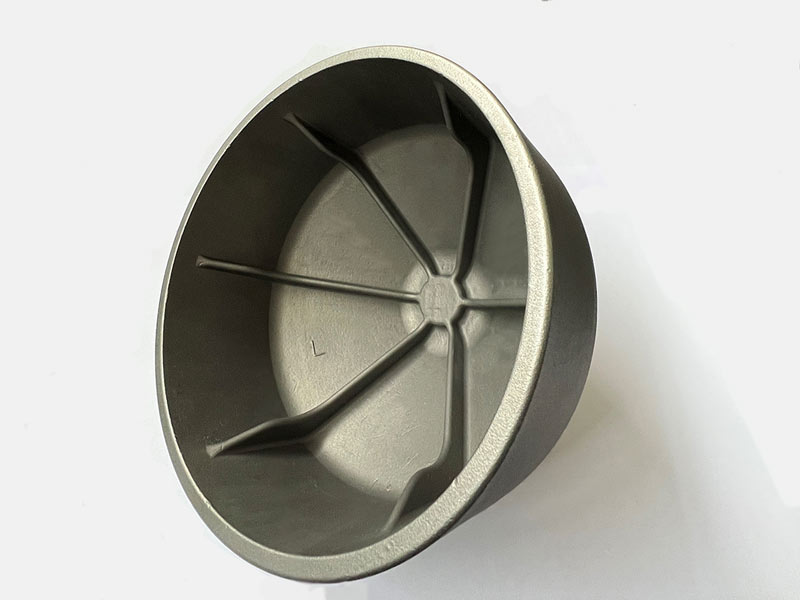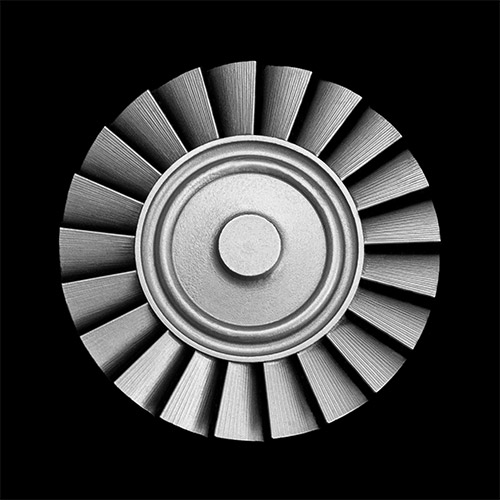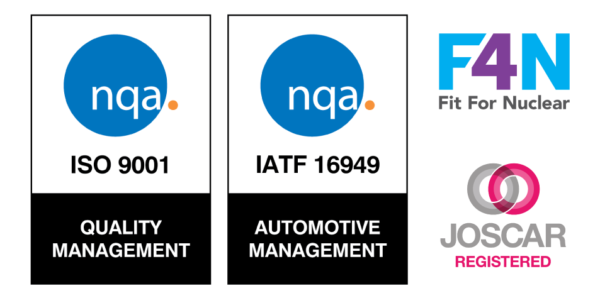Carbon Steel is still the most popular alloy used for investment casting components at Lestercast. It is also still the most common alloy used throughout the manufacturing industry, across the world. This is due the its low cost, variety of material grades and the ability to manipulate it’s properties (such as strength and ductlity) with various treatments. Also, its ferromagnetic properties, make it particularly useful for motor and electrical appliances.
Steel Investment Casting Manufacturer
Carbon steel is an alloy consisting of Iron and 0.12 – 2% Carbon, with varying mechanical properties based on the carbon content. The carbon element gives the steel its strength – the greater the carbon content, the higher the strength. A low carbon steel is weaker than high carbon steel, but is therefore easier to machine and weld as well as being lower cost.
At Lestercast we supply high quality steel castings to a wide range of industries across the world. Over the last 50 years we have refined our processes and techniques, heavily invested in new equipment, machinery and technology to enable us to stay at the forefront of steel casting. We manufacture steel castings from our foundry in the UK, as well as steel castings manufactured from our UK managed overseas partner foundry. We also offer CDP (Component Development Plans) for new products which is our own internally developed system, where our customers are kept up to date with the progress of their new product, whether it be manufactured at our foundry in the UK or manufactured overseas. Accredited with ISO9001 and IATF 16949 we pride ourselves on quality and proudly display just a few of our positive testimonials on our home page. Please visit our case studies page, where we have a few case studies for customers to read, such as the Bentley flying B and a three port collector. Due to the nature of our work, confidentiality is priority and as you can imagine case studies are hard to come by!
There are many grades of steel available at Lestercast to suit your project requirements, please visit our technical data page for spec sheets and sizes. Please get in touch if you require some advice.
ADVANTAGES OF STEEL INVESTMENT CASTING
Depending on grade chosen properties shown below become more prevalent with the use of heat treatment.
The data is the table should be used for guidance only.
SPECIFICATION | GRADE | TYPE OF STEEL | AISI | BS3100:1976 | BS970:1972 | CHARACTERISTICS & TYPICAL APPLICATIONS |
CLA 1 | A | Carbon Steels | C1020/1/2/3 | A1 | 050A22 | Plain carbon steels with a range of tensile properties (via heat-treatment) with good ductility for low and medium strength applications eg. brackets, housing , links |
B | C1030 | A2 | 060A32 | |||
C | C1040 | A3 | 060A42 | |||
CLA 2 | 1.5% Min Steel | C1027 | A4 | 150M19 | Superior properties to plain carbon steel medium stength applications where degree of shock resistance required eg links and levers. | |
CLA 3 | 145-55 ton 700-850N/mm2 Alloy Steel | 9840 | BT1 | 816M40 | A range of tensile strengths possible with good ductility and shock resistance. Readily machineable. Medium and high strength applications where ductility shock and fatigue strength required eg brackets, levers, airframe parts, hydraulic machinery. | |
CLA 4 | 155-65 ton 850-1000N/mm2 Alloy Steel | 4337 | BT2 | 823M30 | ||
CLA 5 | A | High Tensile Steels | 826M31(Z) | |||
B | ||||||
CLA 7 | 3% Cr Mo Steel | B4 | 722M24 | Medium strength, good ductility and resistance to thermal shock. Useful corrosion and creep resistance for parts operating up to 400 degrees celcius. | ||
CLA 8 | Carbon Steel Surface Hardening | C1040 | AW2 | 060A40 | Local or surface hardening to minimum 500HV but retaining good core strength. Pawls, ratchets, triggers. | |
CLA 9 | Carbon Steel Case Hardening | C1060 | AW1 | 080A15 | Low carbon case hardening for carburising or cyanide treatment. Low tensile core gives good shock resistance. Ratchets, operating levers. | |
CLA 10 | 3% Ni Case Hardening Steel | Carburising or cyanide hardening with tough core and reasonable shock resistance. Reciprocating or intermittent loading - high speed connecting links and levers. | ||||
CLA 11 | 3% Cr Mo Nitriding Steel | B4 | 722M24 | Nitride hardening to 900HV retaining high strength core, good ductlity and shock resistance. Moving parts with wear resistance- crack pins and shafts, sewing machine loopers. | ||
CLA 12 | A | 1% Cr Abrasion Resisting Steel | 5147 | BW2 | Steels with capability of good hardness and wear resistance.Grades B and C suitable for heavy duty conditions. | |
B | 5147 | BW3 | ||||
C | 4150 | BW4 | ||||
CLA 13 | Ni Mo Steel | 4617 | 665H17 | Case carburising, medium strength core and reasonable shock resistance. Alternative to CLA 10. |

Carbon Steel Composition
Carbon steel is an alloy consisting of Iron and 0.12 – 2% Carbon. Carbon steel has varying mechanical properties based on the carbon content. The carbon element gives the steel its strength – the greater the carbon content, the higher the strength.
A low carbon steel is weaker than high carbon steel, but is therefore easier to machine and weld as well as being lower cost.
There are many grades of steel available to suit your project requirements.
Please view the available Steel Grades in the table.
It is important to consider the use for the final end product when selecting the correct type and it’s forward usage.
OTHER PROPERTIES OF CARBON STEEL TO CONSIDER;
More susceptible to rust than other steels.
Can not be easily bent and moulded into different shapes.
Industrial Use Of Carbon Steel Castings
Carbon steel castings can be used in many sectors and in a multitude of applications;
- Architecture
- Automotive
- Construction
- Energy
- Food machinery
- General engineering
- Home applications and appliances
- Nuclear
- Railway



